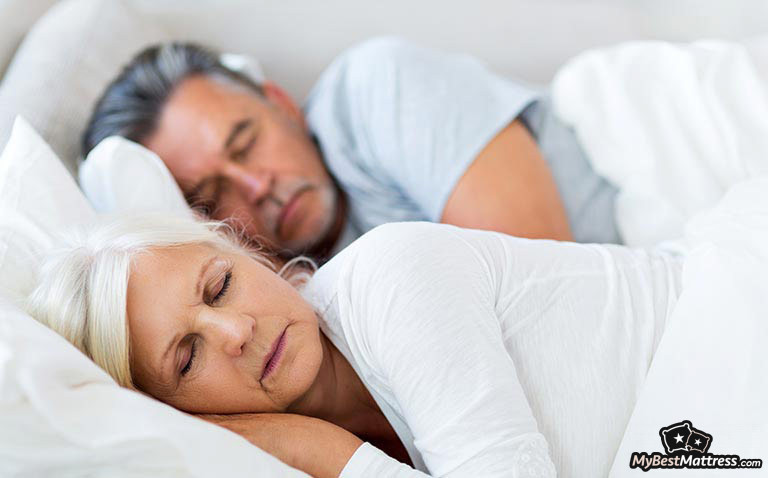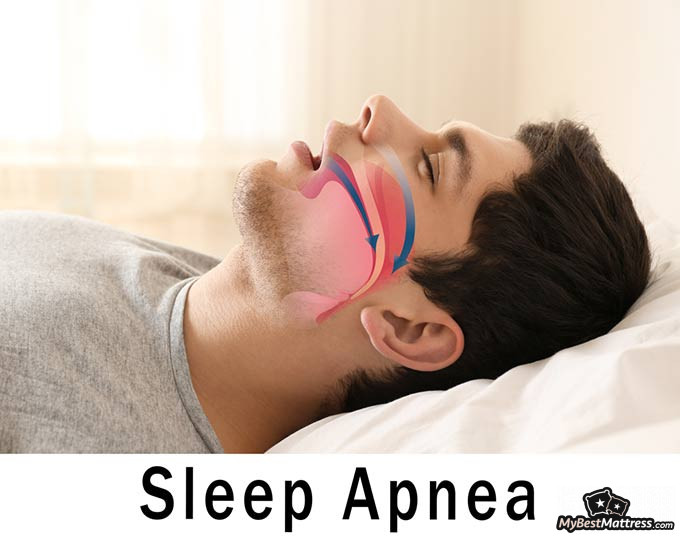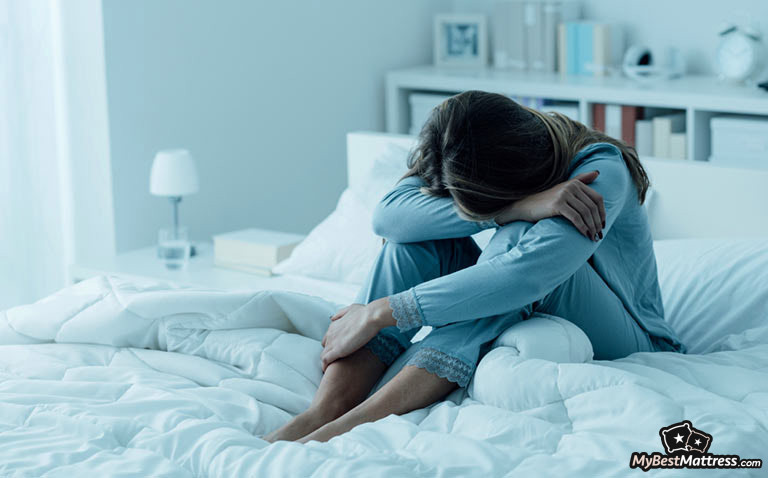
While many individuals are suffering from insomnia, a significant part of people is experiencing excessive daytime sleepiness, which is also a crucial problem that can have a serious impact on you and the people around you.
In this article, I will make sure to provide you with the definition of excessive daytime sleepiness, introduce you with the possible causes and symptoms. Then I will give you some tips that can help to deal with excessive sleepiness. And at the very end, I will conclude everything with the most important information you should take from this article.
So, if you keep asking yourself: “Why am I so sleepy?”; continue reading this article.
Table of Contents
What is Excessive Daytime Sleepiness?
Excessive daytime sleepiness is not a disease but rather a symptom and a problem that can have many serious causes and affects around 20% of the population[1]. People who experience excessive daytime sleepiness, usually feel tired and dizzy during the day, they cannot fully participate in various activities and perform multiple tasks.
The most common causes of excessive daytime sleepiness are the lack of sleep, irregular sleeping schedule, and of course sleeping disorders, such as obstructive sleep apnea. For such people, the most dangerous thing is to drive a vehicle during the day, as there’s a threat to make an accident.
This is only the basic information about redundant drowsiness, so you should move further into the article and get more details about symptoms and causes of excessive daytime sleepiness, and tips that can help you to fight it.
Symptoms of Excessive Daytime Sleepiness
Do you keep asking yourself, why am I so sleepy all the time? If yes, then you might feel excessive daytime sleepiness, which might be caused by a medical condition or other reasons that may not be so easy to figure out.
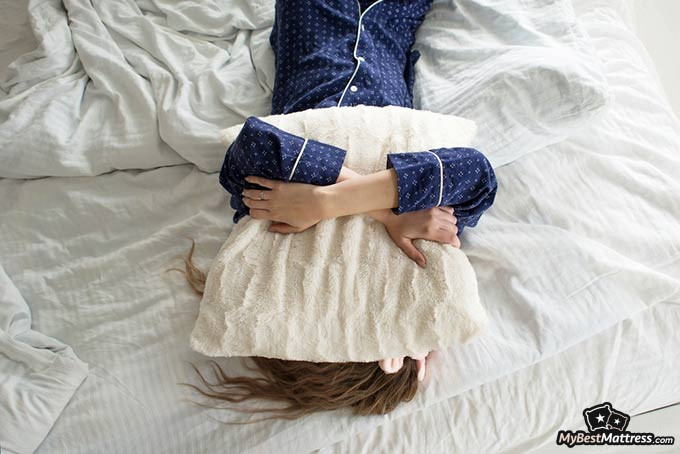
But before making any assumptions, here are the symptoms that could mean you have some issues:
- Difficult to wake up in the morning and feeling sleepy during waking hours.
- Naps do not help you to feel more rested.
- You lost your appetite.
- You may have some issues with your memory and thinking.
- You feel irritation and anxiety.
Since it's known that about 20% (18% to be particular[2]) of adults experience these problems regularly, it means that this issue is truly common. So, if you’re constantly feeling these symptoms, you should talk to your doctor, he will tell you what to do and whether or not it’s a real problem.
Causes of Excessive Daytime Sleepiness
Since excessive daytime sleepiness is not a disease but a symptom, it can be caused by a variety of disorders or simple habits.
One of the most common causes, which can influence excessive sleepiness is not getting enough sleep, either by choice or unintentionally. It’s not surprising that not getting enough sleep during the night will influence your feelings during the day.
So, if you are concerned that you have any type of disease, first, take a look at your sleeping habits. Maybe you sleep about 5 or 6 hours per night? If yes, then there’s no need to ask why you’re so sleepy all the time, the answer is clear.
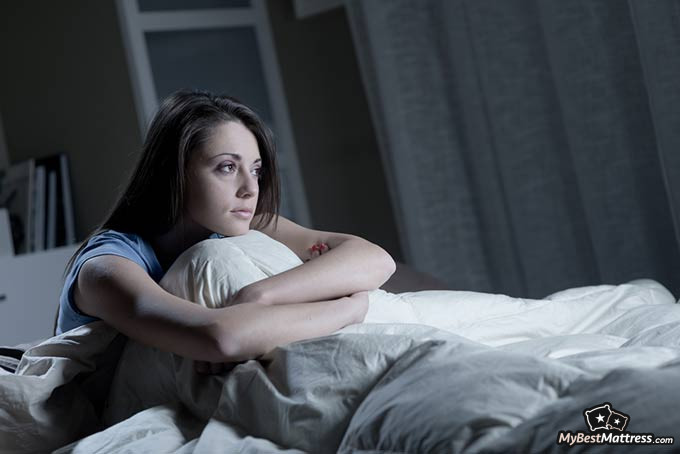
Another reason why you could experience constant sleepiness is the night shifts. Maybe you work during the night and sleep during the day? If yes, then your sleep-wake cycle is disrupted and your body no longer understands when it’s time to sleep and when you should wake up.
Of course, such habits as the usage of drugs, alcohol, and cigarette use can be also the cause of excessive daytime sleepiness. And, if you suffer from obesity, lack of physical activity, and use medications, they can also influence daytime sleepiness.
Therefore, excessive daytime sleepiness doesn't mean that you have some sort of disorder, it can simply be the cause of an unhealthy lifestyle. So, before making any major changes, you should first take a look into your habits, maybe they’re the only thing you will need to change.
Conditions that Cause Excessive Daytime Sleepiness
You already know that excessive daytime sleepiness can be caused by an unhealthy lifestyle and the lack of sleep, however, you should also be aware of sleeping conditions and disorders; they can be the answer to your question of why you’re so sleepy all the time. So, here are the disorders, which are most commonly associated with sleepiness:
- Restless Legs Syndrome - long-term disorder, which creates a strong urge to move one’s legs. People who have experienced this condition say that they feel the very unpleasant feeling in legs, which is similar to aching and tingling. These sensations most commonly appear when you’re resting, so usually during the night. Therefore, restless legs syndrome disrupts your sleep and leads to sleepiness when you should be awake.
- Sleep Apnea - a disorder that is identified when the pauses in breathing during the night appear. This disorder is the most common among 55-60 years, however, it can also happen to younger individuals. So, since this disorder interferes with your sleep, it can lead to excessive daytime sleepiness. While sleepiness can be caused by Sleep Apnea, it can also other problems, such as high blood pressure, heart attack, obesity, diabetes, fatigue, and many other problems.
- Narcolepsy - sleeping disorder, which decreases the ability to regulate the sleep-wake cycle and arises short periods of daytime sleepiness. The causes of narcolepsy are unknown, however, regular short naps and sleep hygiene is considered one of the treatment methods. About 70% of people who have narcolepsy also experience cataplexy, which is sudden episodes of muscle weakness.
- Depression - anxiety, sadness, and hopelessness can be the reason for excessive sleepiness as well. People who are depressed tend to be sleepy, forgetful and lack concentration. There are various different types of depression, including major depressive disorder (MDD), persistent depressive disorder, bipolar disorder, postpartum depression, premenstrual dysphoric disorder, seasonal affective disorder, and many other types. All of them can have a major influence on your sleep and overall emotions.

Therefore, these are the main conditions associated with excessive daytime sleepiness. If you can recognize yourself in one of them, go straight to the doctor, he will either confirm your guess or give you simple advice that can help. With the same topic, let’s move further and discuss tips that can help to avoid daytime sleepiness.
Tips to Avoid Daytime Sleepiness
Everyone has experienced sleepiness at some point in their lives, but when you feel the lack of sleep all the time, it becomes a serious problem that negatively affects your work, social life, and other important aspects.
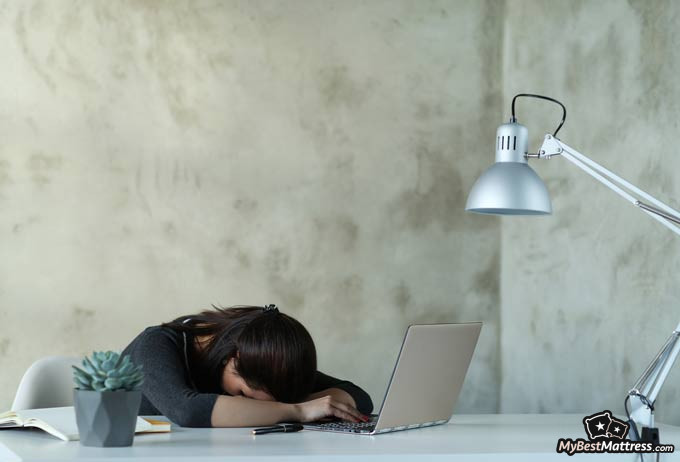
If you experience daytime sleepiness and even if you feel tired all the time, here are some tips you could use:
- Get good nighttime sleep - I know it might sound obvious, however, many individuals do not understand that even adults need from 7 to 9 hours of sleep per day. So, being as busy as we all are, we tend to use those few hours of sleep for extra work, which in the long run leads to excessive daytime sleepiness.
- No distractions in the bed - your bed should be used only for sleep and sex, you should get rid of habits, such as eating, drinking, watching TV and doing other activities in bed. This way, every time you go to bed, your brain knows it’s a signal to go to sleep.
- Create a routine - you should try to go to sleep and wake up at the same time every day, even on weekends. This way you will create a sleeping routine that will allow you to sleep better and wake up better rested. For those who suffer from insomnia, this task might seem very difficult, so you should set your wake-up time only. At least at first.
- Try going to sleep a little bit earlier each night. For those who have inconsistent sleeping habits, it might be impossible to go to sleep early. So, the best way is to go to sleep at least 10 minutes earlier every night. This way you will slowly adapt your new sleeping habits.
- Acquire healthy habits - not only good sleeping habits are important but also healthy food. You should make sure to eat breakfast and lunch at a similar time during the day. It will help to regulate your circadian rhythms. What is more, you should exercise at least 30 minutes per day. You will be more tired in the evening and fall asleep so much easier.
- Get rid of the late naps - if you have a hard time falling asleep in the evening, late naps will make it even worse. So, if you won’t get enough rest at night, you might experience excessive daytime sleepiness.
- Create a relaxing bedtime routine - try various relaxation techniques before going to bed. For example, meditation, listening to relaxing music, reading a book. And, you can also try chamomile tea and warm milk, which have calming effects.
- Visit a doctor - I gave you various advice, which can help you to avoid daytime sleepiness, however, they won’t be helpful if you have some sort of sleeping disorder. So, if you’re experiencing strong symptoms, you should visit a doctor, he will tell you exactly what to do.
- Get a comfortable mattress - trust me, as unimportant as it might sound to some, this is one of the most important aspects for quality sleep. You should choose memory foam, innerspring, hybrid or latex mattresses. If you choose the quality options, these mattresses should serve you at least six to seven years and even more. And, according to the majority of customers’ reviews, these are the best designs for everyone who wants to get the quality nighttime sleep.
How to Treat Daytime Sleepiness?
I will tell you how the daytime sleepiness can be treated, but before taking any medication, you should talk to your doctor.
So, earlier, I distinguished the four most common disorders that are associated with sleeping. Now let’s go through them again and see what treatment methods and medicines can be used to get better:
- Restless Legs Syndrome - this disorder can be treated by changing your sleeping habits and using medication such as levodopa, dopamine agonists, gabapentin.
- Sleep Apnea - to treat this disease, you should choose a healthier lifestyle, also various mouthpieces and breathing devices can be used and even surgery.
- Narcolepsy - this disease can be treated with short naps and sleep hygiene. To treat this disorder, modafinil, sodium oxybate and methylphenidate are used.
- Depression - depression treatment usually includes behavioral therapy, interpersonal therapy, and psychodynamic therapy.
I already said but it’s important to once again highlight that none of the medication should be used without first talking to your doctor. 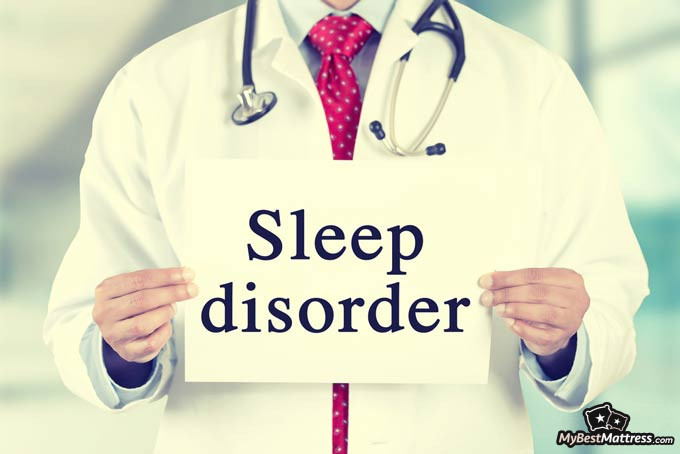
Conclusions
Do you feel sleepy all the time during the day, have a hard time falling asleep during the night and waking up in the morning, or maybe you feel dizziness during the day, lose your appetite and have some issues with your memory and thinking? If yes, then you might be feeling excessive daytime sleepiness, which can be caused by poor sleeping habits or more serious disorders.
Therefore, after asking yourself, why am I so sleepy, you should think about your sleeping habits, maybe you cut away your nighttime sleep to do some extra work, or maybe you go to bed really late and wake up early. But you should also note, that excessive daytime sleepiness can be the cause of an unhealthy lifestyle, obesity and the usage of medication.
However, while some can deal with excessive sleepiness by simply changing habits or getting a comfortable mattress, others might struggle because of restless leg syndrome, sleep apnea, narcolepsy and depression, which can all be the reason why you’re tired during the day.
So, if you feel any of the symptoms, the first thing you should do is to go talk to your doctor, he will give you advice and make extra examination if needed. Just remember that all of us feel tired sometimes, so maybe you just need a few days off to get some rest.
Scientific References
1. J. F. Pagel et al.: 'Excessive Daytime Sleepiness'
2. Gemma Slater and Joerg Steier: 'Excessive daytime sleepiness in sleep disorders'
Leave your honest feedback
Leave your genuine opinion & help thousands of people to choose the best mattress. All feedback, either positive or negative, are accepted as long as they’re honest. We do not publish biased feedback or spam. So if you want to share your experience, opinion or give advice - the scene is yours!




